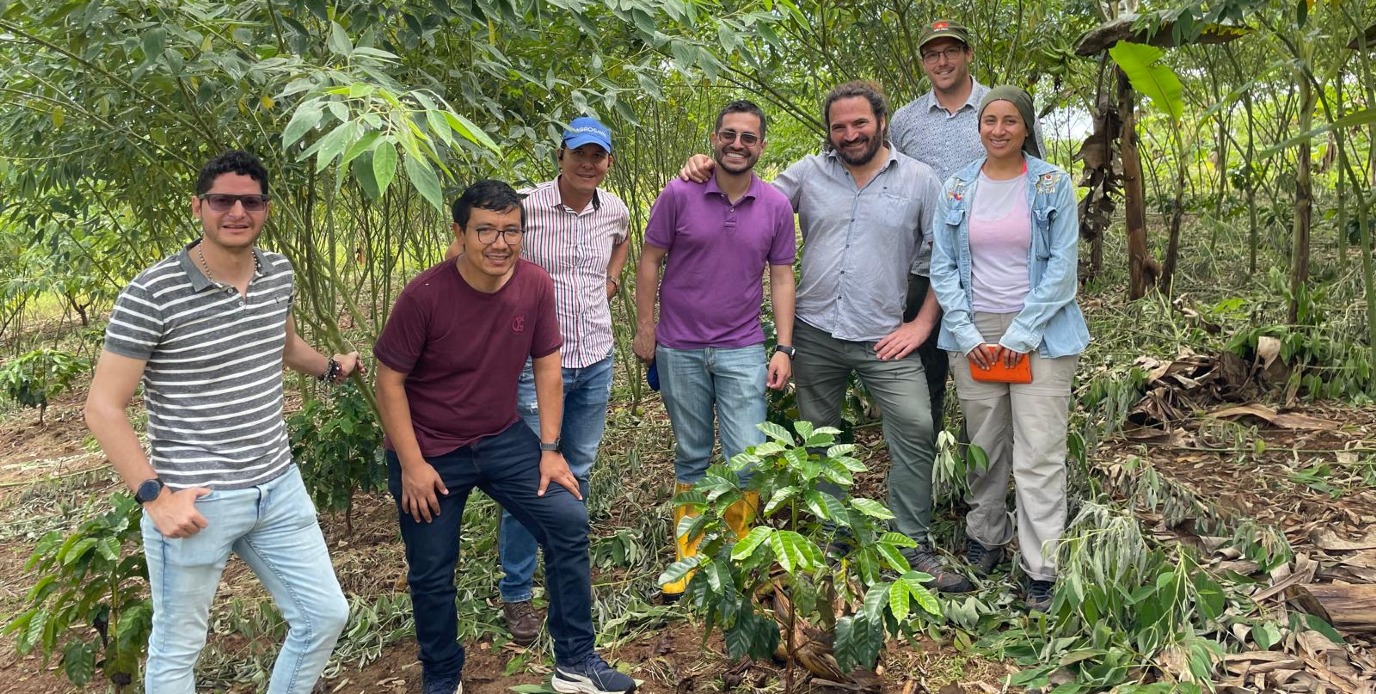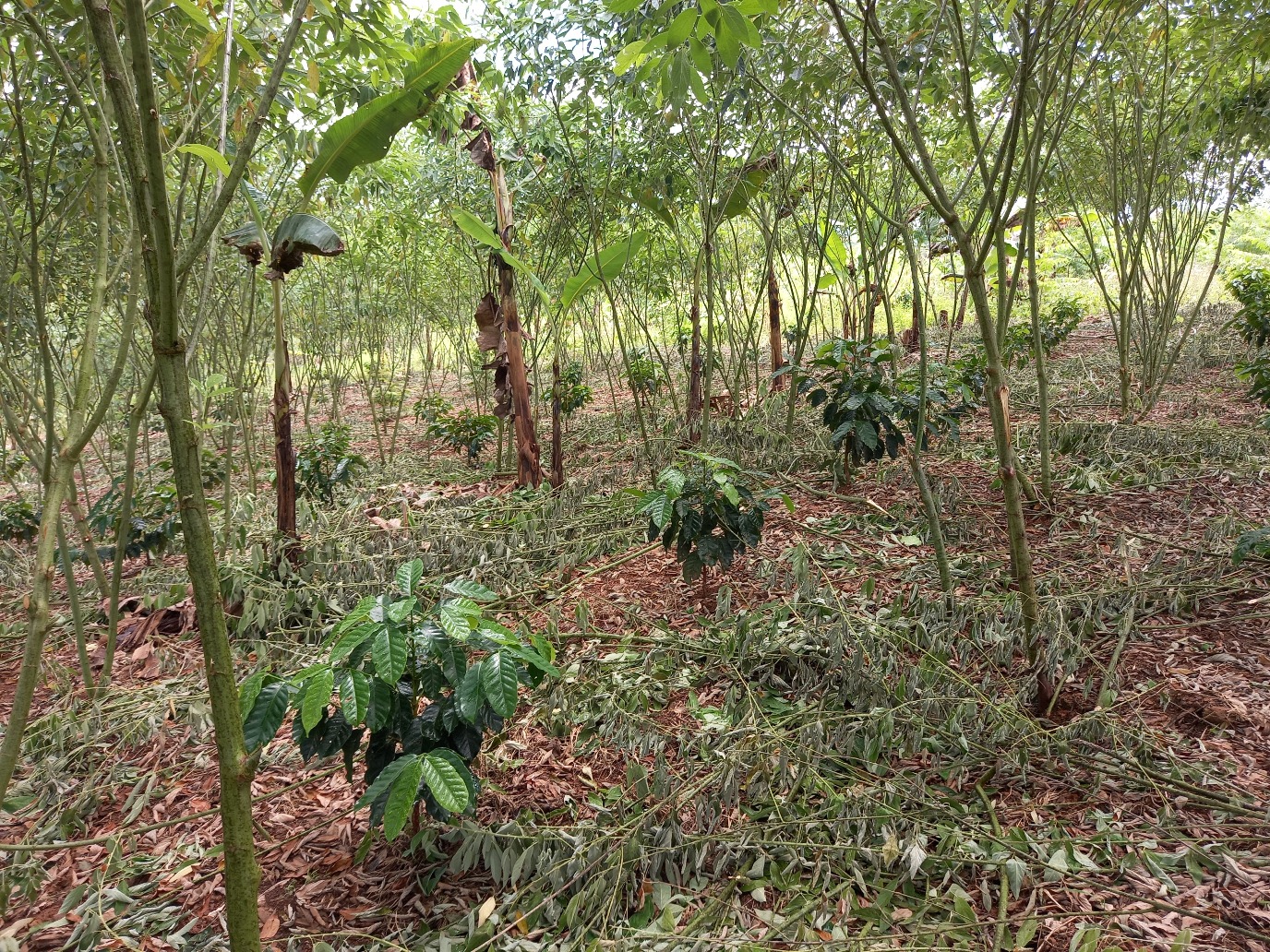Growing coffee in the shade: Towards agricultural sustainability in Colombia.
William Andrés Cardona is the winner of a Rudolf Agricola PhD Grant. With this grant, he can evaluate different sustainable indicators in forty coffee farms in the Meta department in central Colombia for his research:
'In Colombia, coffee plantations are often established in mountainous areas at an altitude of about 1200 meters. The Meta department is an exception to this; it is lower and much flatter. Farmers there now cultivate monocultures of coffee plants, but we believe it can be much better with agroforestry. There is a lot of space between the coffee plants where other crops and trees can be planted, which benefits sustainability.'

There is an awful lot of coffee in Brazil!' goes the famous song. Colombia however, is often associated with an infamous product: cocaine. The Colombian government now is trying to change that. Coffee can grow well in many parts of Colombia also, and it offers a good alternative for Colombian farmers. But how do you grow coffee as sustainably as possible? This is being researched by William Andrés Cardona, a PhD student at the University of Groningen, under the guidance of Professor Pablo Tittonell. Cardona: 'Colombia has an agricultural institute that has been researching coffee cultivation for a hundred years. Yet they do not conduct scientific research in Meta because the area is still considered too dangerous and not significant.'
Trees to reduce heat
Cardona's research began in September 2022, and in August 2023, farmers planted coffee plants according to principles developed together with Cardona and Tittonell. Latin America was once known for its 'three sisters agriculture.' Indigenous farmers planted corn, beans, and squash together. Europeans, used to monocultures, found that messy, but this mix worked well for the soil, against pests, and yielded a good harvest without pesticides and fertilizers. Cardona's new system seems to be a modern variation of this.
Cardona: 'Despite the presence of illegal groups in the region, coffee production offers a good opportunity for legal economic development. However, the agro-ecological conditions in the south of Meta require a different approach to coffee cultivation than in other Colombian regions. Farmers have now, in consultation with us, planted other crops and trees between the coffee plants. Trees can help reduce extreme heat with their shade and increase the yield of food crops. This creates systems that make the depleted soil fertile again by adding organic matter. Meta is known for producing plantains and cassava, which have a growing demand. Avocado cultivation also offers potential for the local market, creating opportunities to sell the additional crops.'

What's the best mix?
While monoculture plantations can increase production in the short term, they are harmful to the environment. The soil quickly loses its fertility, and biodiversity decreases. Moreover, these plantations are vulnerable to climate change. Cardona hopes that his method of crop diversification will increase biodiversity and agricultural productivity and be good for the soil. By growing different plants together, they are more resistant to diseases and there is less need for fertilizers and pesticides. However, the question remains: what is the best mix of plants?
Cardona: 'We have established plantations with different ground covers and crops, including avocado, plantain, corn, beans, pigeon peas, and cassava. We measure the effects on ecosystem services such as carbon sequestration, soil quality, and food security. We conducted measurements before introducing the new plants and are now monitoring how the soil and plants develop.
Coffee plants only yield after two years, so farmers would not have earned anything until now. By growing other crops between the coffee plants, they earn from the beginning. We are also investigating what the farmers do with those products: do they sell the yield, eat it themselves, or use it to feed animals?
With climate change in mind, we are also looking for alternative crops for areas becoming less suitable for coffee. Ultimately, we expect to gain a lot of knowledge that will make coffee cultivation more sustainable and environmentally friendly, and also ensure farmers a good yield.'

How this Rudolf Agricola School Grant is being usedThe grant will be used to study how sustainable an agroforestry system (SAFS) is for growing coffee in Mesetas and Uribe (Meta), Colombia. The grant money will fund soil sampling on 40 coffee farms (17 in Mesetas and 23 in Uribe) to understand the ecosystem services related to coffee crops. Various factors will be measured to assess the sustainability of the farms, such as weather conditions, plant growth (e.g., height and size), coffee production (e.g., yield and quality), and greenhouse gas emissions. Overall, the grant will support activities that evaluate the sustainability and ecological performance of coffee agroforestry systems, generate valuable data on sustainable farming practices, improve coffee productivity, and help farmers cope with climate change. |
| Last modified: | 25 June 2024 1.13 p.m. |
More news
-
24 March 2025
UG 28th in World's Most International Universities 2025 rankings
The University of Groningen has been ranked 28th in the World's Most International Universities 2025 by Times Higher Education. With this, the UG leaves behind institutions such as MIT and Harvard. The 28th place marks an increase of five places: in...
-
05 March 2025
Women in Science
The UG celebrates International Women’s Day with a special photo series: Women in Science.
-
16 December 2024
Jouke de Vries: ‘The University will have to be flexible’
2024 was a festive year for the University of Groningen. In this podcast, Jouke de Vries, the chair of the Executive Board, looks back.

